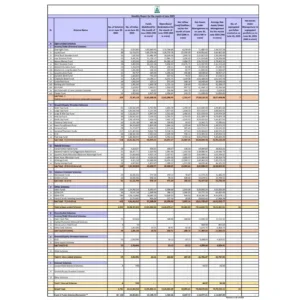
On Wednesday, China’s leading stocks experienced a significant drop, reaching their lowest point in nearly five years. This decline was coupled with a continued depreciation of the Chinese yuan. The market sentiment remained delicate following Moody’s decision to downgrade China’s credit outlook.
Moody’s, a ratings agency, had warned about a potential downgrade to China’s credit rating, citing concerns about the costs associated with supporting local governments and state-owned enterprises, as well as addressing the country’s property crisis. This added pressure on the world’s second-largest economy.
The CSI300 Index, particularly affected by the downgrade due to higher foreign investor allocations, touched its lowest level since February 2019. However, there was optimism that the index might find a bottom and rebound soon, according to Pang Xichun, research director at Nanjing RiskHunt Investment Management Co.
In contrast, the Hang Seng Index showed a slight rebound of approximately 0.8% in morning trade. Despite the challenging situation, foreign capital saw a net inflow via the northbound trading link after three consecutive sessions of outflows.
The Chinese yuan faced further weakening against the dollar, opening at 7.1570 per dollar and trading at 7.1567 as of 0255 GMT. This marked an 87-pip decline from the previous late-session close. Major state-owned banks in China intensified their efforts to stabilize the currency by selling U.S. dollars forcefully, both after Moody’s statement on Tuesday and throughout Wednesday morning, as reported by Reuters.
Bringing you the latest updates on finance, economies, stocks, bonds, and more. Stay informed with timely insights.











Be First to Comment